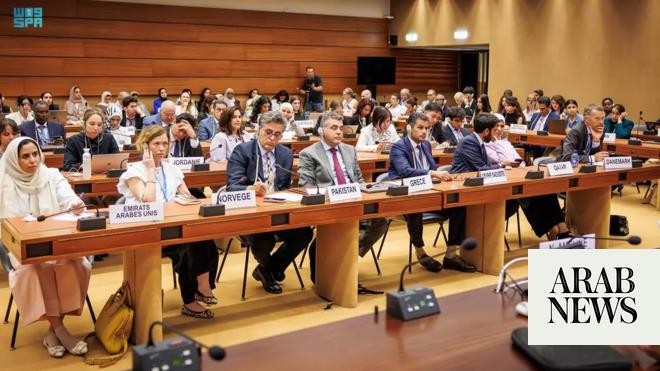
Saudi Arabia narrowly failed in its bid to win a seat on the United Nations Human Rights Council, a blow to Riyadh’s efforts to boost the country’s rights reputation abroad, four years after it was rejected in a 2020 bid to join the 47-member body.
Saudi Arabia is spending billions to transform its global image from a country known for strict religious restrictions and human rights abuses into a tourism and entertainment hub under a plan its Crown Prince, Mohammed bin Salman, launched known as Vision 2030.
Members of the Geneva-based Human Rights Council are elected by the 193-member UN general assembly in New York, in a secret ballot in geographical groups to ensure even representation.
The Asia-Pacific group, which included Saudi Arabia, was the only competitive race on Wednesday, with six candidates vying for five seats. Saudi Arabia missed out with 117 votes.
Campaigners had warned that Saudi Arabia’s election to the council would undermine its ability to demand justice for rights violations and would feel like a “slap in the face” to the many victims of the Saudi regime.
To the dismay of human rights groups, Saudi Arabia was chosen in March to chair a UN commission that is supposed to promote gender equality and empower women around the world.
Before the vote on Wednesday, Louis Charbonneau, UN director at Human Rights Watch, called Saudi Arabia “unfit to serve on the Human Rights Council.”
He pointed to accusations that Saudi border guards had been accused of killing hundreds of Ethiopians as they sought to cross from Yemen in 2022-23 in what critics have said may amount to a crime against humanity, and that the country has still not accounted for the 2018 murder of the journalist Jamal Khashoggi.
“Governments that commit crimes against humanity or similar atrocities and ensure impunity for those responsible shouldn’t be rewarded with seats on the UN’s top human rights body,” Charbonneau said.
A letter sent last year by Saudi Arabia’s mission to the UN in Geneva said that it “categorically refutes” allegations that the kingdom carries out any “systematic” killings on the border. The Saudi government has maintained that Khashoggi’s killing was carried out by a rogue group.
While the Human Rights Council does not have legally binding powers, its meetings raise scrutiny and it can mandate investigations to document abuses, which sometimes form the basis for war crimes prosecutions.
It was created in 2006 to replace a human rights commission discredited because of some members’ poor rights records. But the new council soon came to face similar criticism, including that countries sought seats to protect themselves and their allies.
Democratic Republic of Congo, Ethiopia, Kenya, Czech Republic, North Macedonia, Bolivia, Colombia, Mexico, Iceland, Spain and Switzerland were elected to the council. While Benin, the Gambia and Qatar were reelected for a second three-year term. Council members cannot serve more than two consecutive terms.







